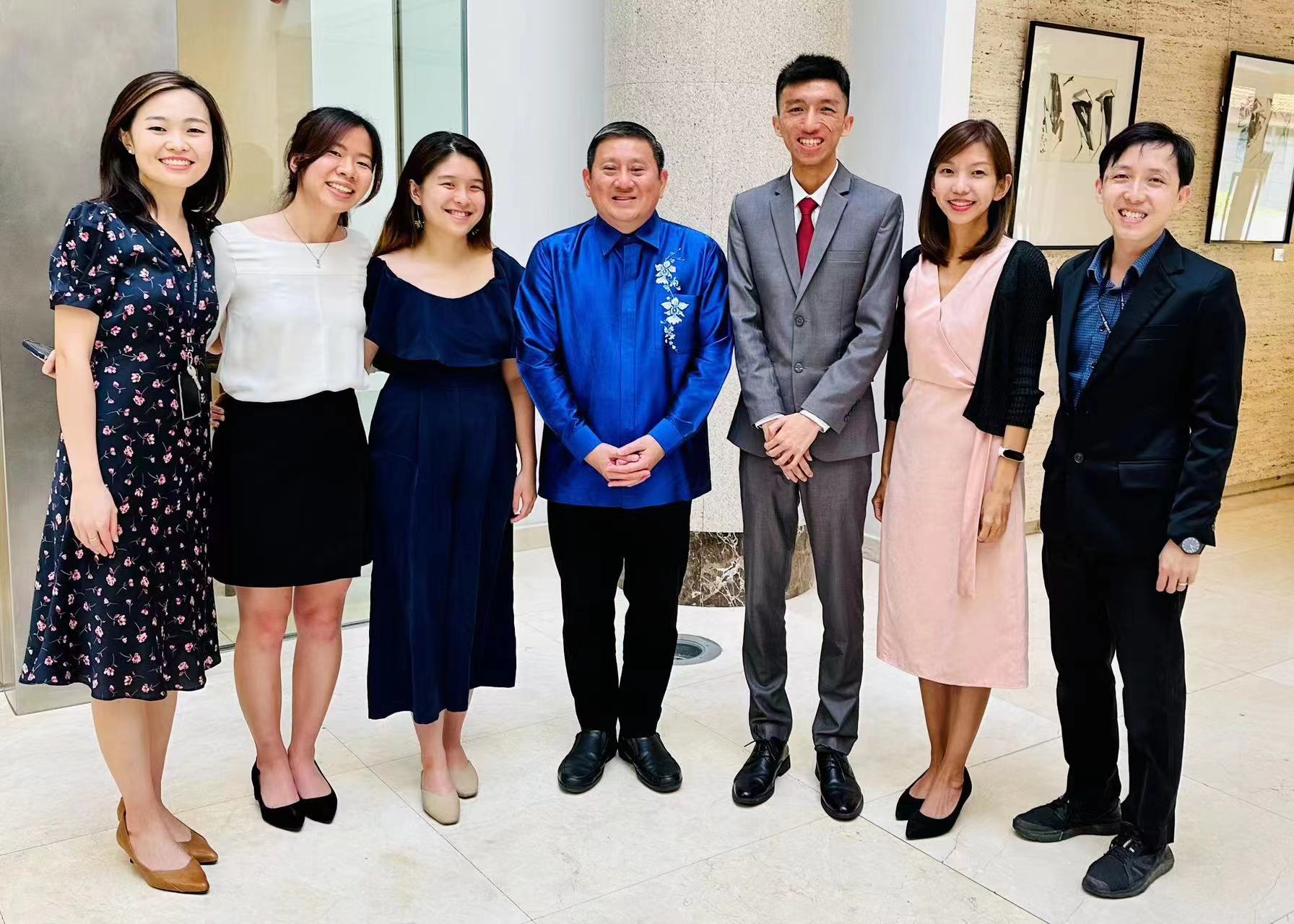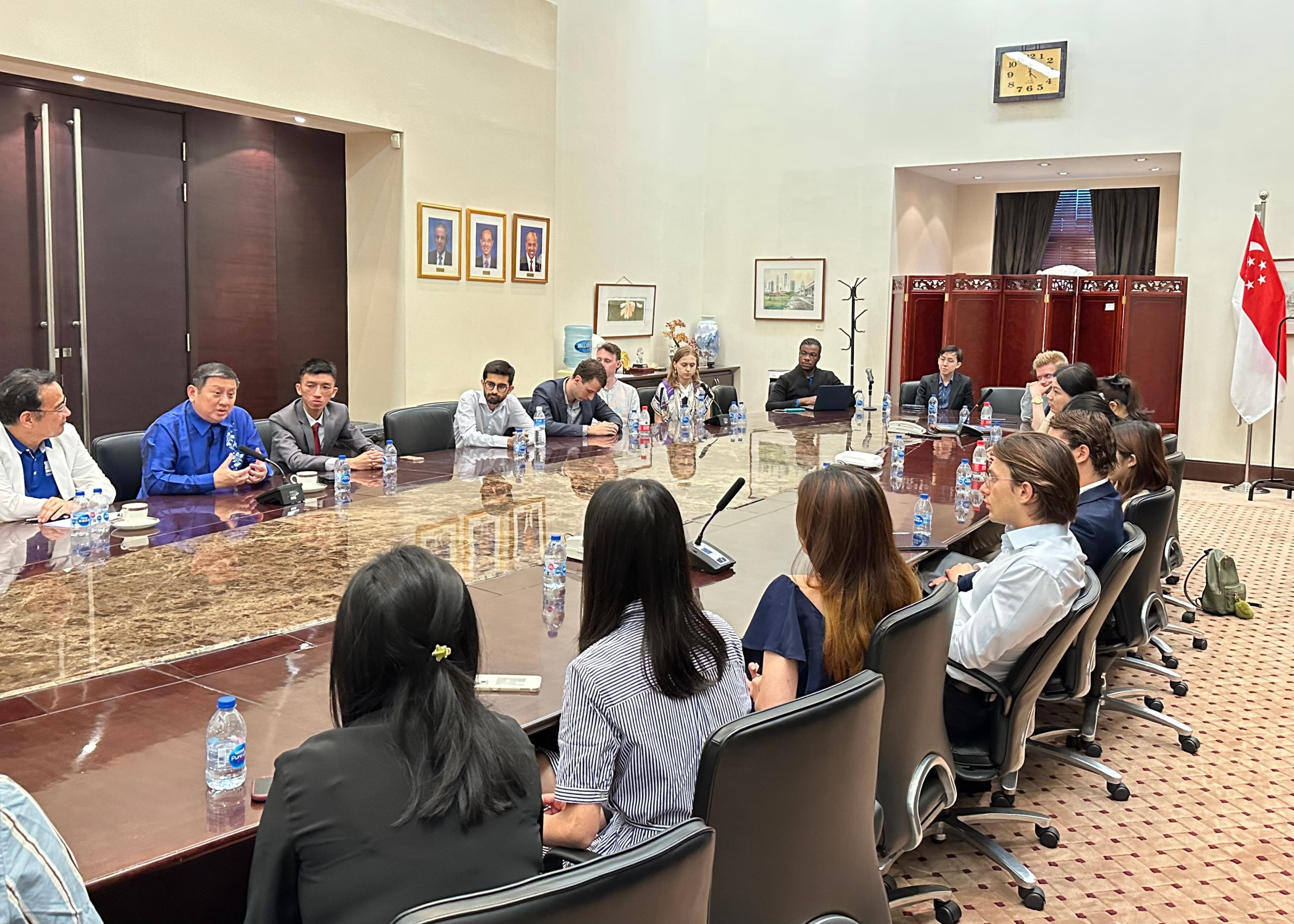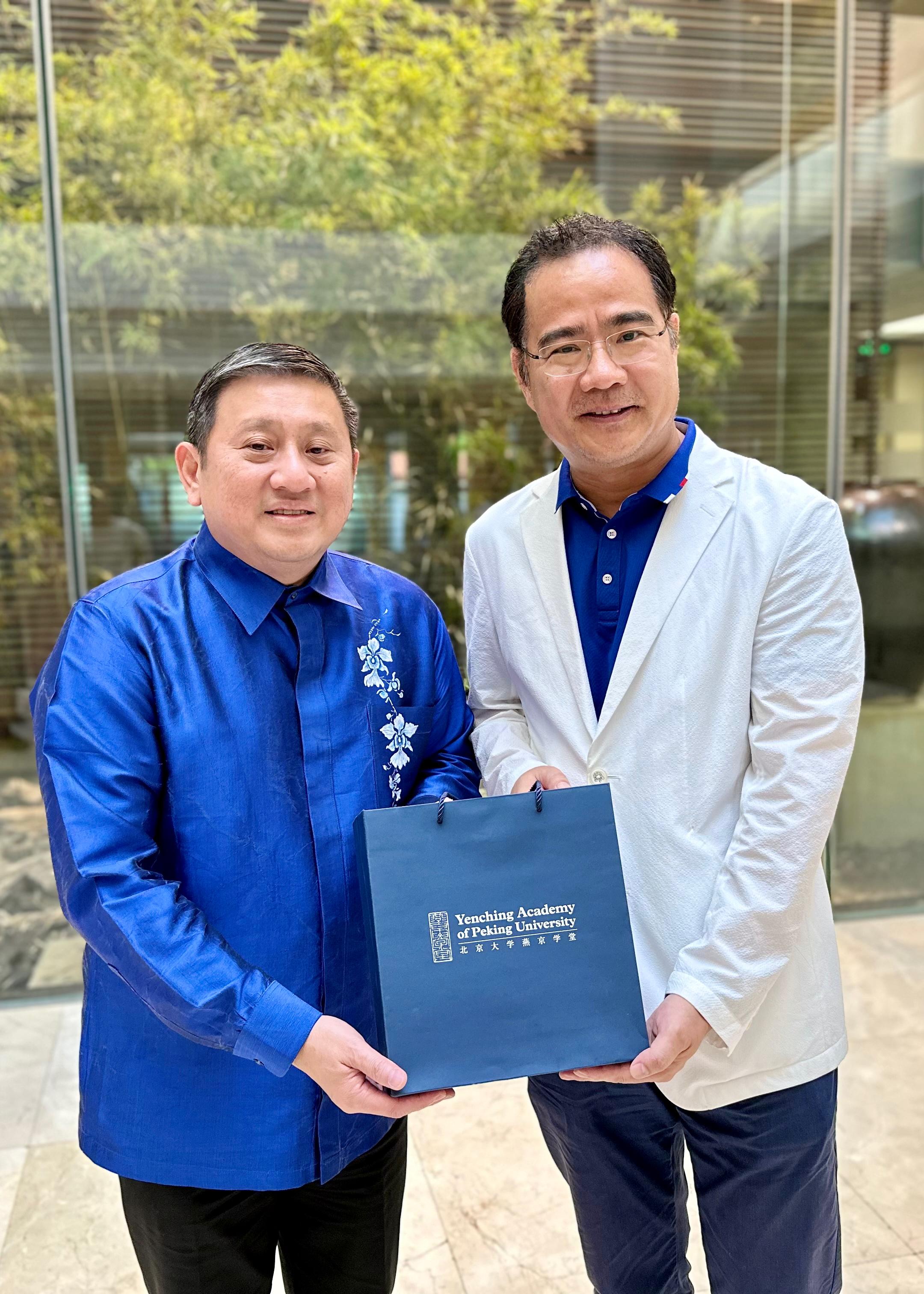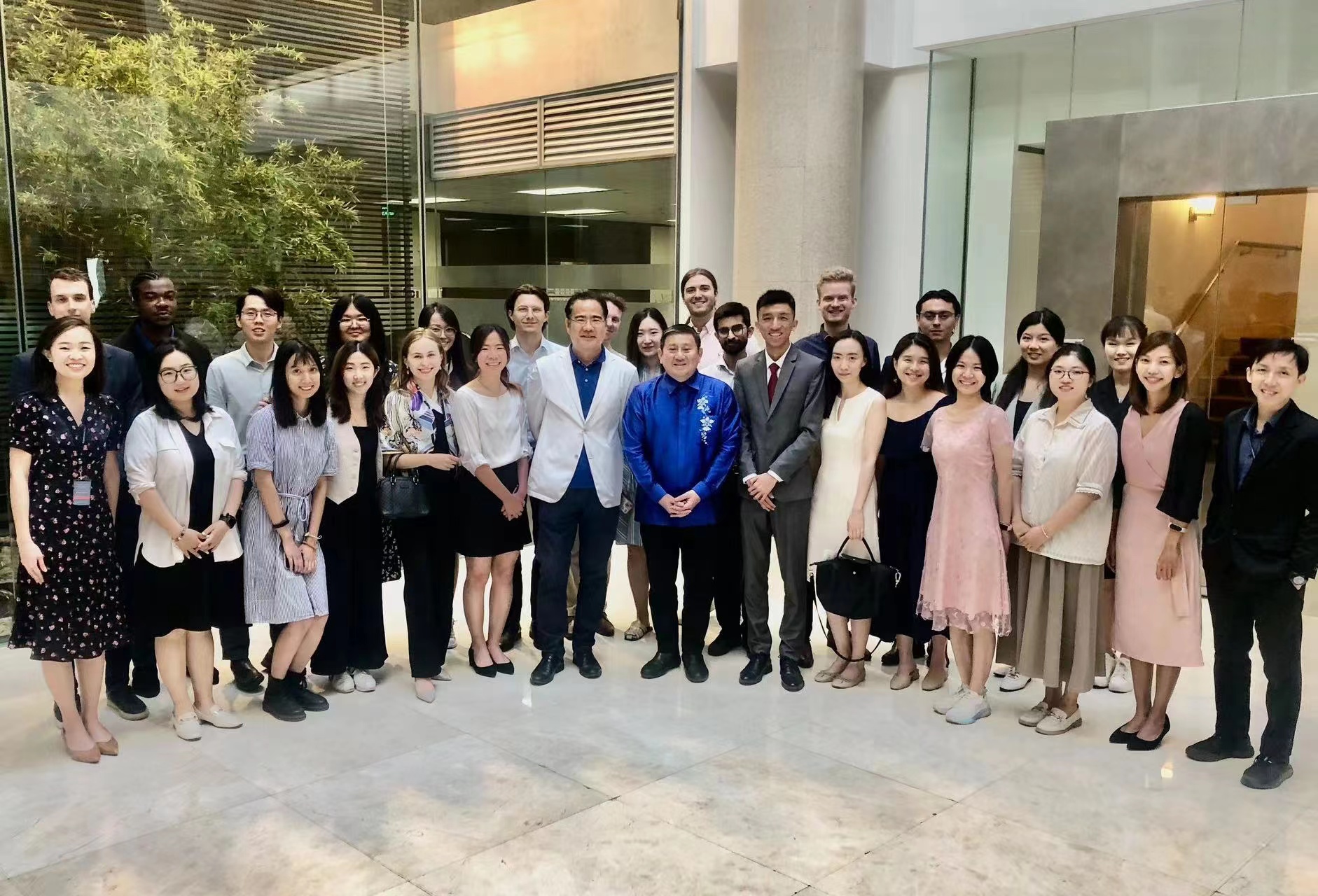On June 30, a group of Yenching Scholars and staff, led by Yenching Academy Dean Dong Qiang, visited the Singapore Embassy in China and were received by the Singapore Ambassador to China, H.E. Mr. Peter Tan Hai Chuan, and embassy staff. This visit, planned by Hong Kai Tan (2022 Cohort, Singapore) with support from the Yenching Academy office, was designed to offer ample opportunity for Yenching Scholars to broaden their minds to understand international relations, diplomacy, and cultural diversity.

Ambassador Tan gave a brief speech, welcoming Yenching Academy Dean and Scholars and expressing his appreciation to all present for deciding to visit the embassy. The Singapore Ambassador to China, who took office about two months ago, talked about his 30-year-long career in diplomacy, having served in Japan, Korea, Malaysia, and a little stint in the US., before arriving in China. He debunked the myth about the work of diplomats mainly being centered on attending events and socializing, noting that international relations involve numerous negotiations, which can only work when there is a willingness to meet people and find common ground. “As a diplomat, I represent my country’s national interests. Diplomats do a lot of negotiations to resolve disagreements because sometimes interests clash between countries. So, our work is more complicated than attending events, although our job requires us to attend several functions since we need to meet and engage with people.”
Prof. Dong Qiang gave a remark following the Ambassador’s welcome address, extending gratitude, on behalf of Yenching Academy, to Ambassador Tan and the embassy staff for their hospitality. He briefly introduced the Yenching Academy master’s program and lauded the efforts of Yenching Scholars in facilitating the program’s success via different engagements and platforms, including the Yenching Global Symposium. “We are grateful that in this increasingly interconnected world, our students, the torchbearers of the future, desire the invaluable role of being ‘ambassadors’ to facilitate dialogues, mutual learning and understanding, and problem-solving. Our visit fans the embers of this desire, encouraging us to envision our role in shaping a better, more peaceful and prosperous world.” Lastly, Dean Dong expressed the Academy’s desire to maintain and expand cooperation with the Singaporean embassy, and extended a warm invitation to the Ambassador and his staff to visit Yenching Academy on the vibrant Peking University campus.
Ambassador Tan opened the floor for comments and questions from the students after they had introduced themselves. Yenching Scholars raised several questions. One question concerned the Ambassador’s experience dealing with Chinese diplomats, given the increasingly popular view that finding common ground with China on several issues is becoming challenging. The Ambassador explained that finding common grounds when dealing with diplomats from other countries necessitates the two sides to collaborate and decide on what to agree on and make concessions about other conflicting issues. This process requires understanding the core issues, Singapore’s national interests, and the other party’s primary concerns. He also talked about how beneficial it was to take over the role and engage his Chinese counterparts after China lifted its Covid restrictions, adding that the pandemic amplified misunderstanding and hindered many face-to-face meetings that offered room for more dialogues.

Another question was about what has stood out to the Ambassador in the three decades he had worked in diplomacy. Ambassador Tan responded that the fascinating aspect of his diplomatic career is the call to service to push Singapore’s national interests, improve the country’s image, and willingly meet other people while embracing empathy to see the world through their eyes to find solutions to pressing issues. “Diplomacy is not a business, a startup or a venture capital; it is a calling to serve your nation and promote and defend the national interest. It is difficult to set KPIs in diplomacy because international relation is a two-way process; both parties need to agree. The difficulty occurs because you cannot control or precisely predict the reactions of the other parties.” He noted that this is one of the many reasons numerous international relations issues take longer to resolve.
Another Yenching Scholar asked how the Ambassador viewed the rapport between the US and China and what young Scholars and aspiring diplomats could learn from his experiences. Ambassador Tan explained that there is no denying that the relationship between the United States and China is probably the most important issue in the Asia-Pacific region. Nonetheless, he emphasized that his role obligates him to consider the best approach to advance Singapore’s national interests irrespective of how the relationships evolve between the two biggest economies. He pointed out that many in academia have debated the inevitability of conflict despite the high rate of interdependence between the US and China and many economies in the world. “From where I am sitting, I don’t think so, and I believe that the leaders of both countries don’t want conflict… I believe that both presidents know this relationship is important not just for themselves but for the world,” Ambassador Tan described. He suggested young people should view the US-China ties through a pragmatic lens, seeing the relationship as it is, not how we want to see it or how we think it ought to be.

After the Q&A session, Yenching Academy Dean Dong presented a gift to the Ambassador on behalf of the Academy.
The event came to a close following the Ambassador’s invitation to the group of Yenching Scholars and staff to a buffet serving a variety of Singaporean dishes. Everyone present gathered for a group photograph with the Ambassador.
